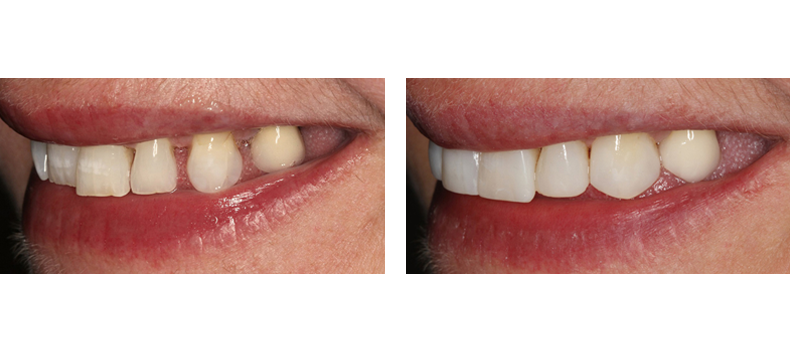
Composite Bonding
Dental bonding is amongst the easiest and least expensive of cosmetic dental procedures. Unlike veneers and crowns, which are customised tooth coverings that must be manufactured in a lab, bonding usually can be done in one office visit unless several teeth are involved. Another advantage, compared with veneers and crowns, is that the least amount of tooth enamel is removed. Also, unless dental bonding is being performed to fill a cavity anaesthesia is usually not required.
Composite veneers are sometimes preferred by the patients as they involve less appointments, usually only one. The overall life span of this option lasts up to average of 5 years, but with regular polishing can last longer. They are more prone to breakage than porcelain veneers, but this can be repaired if it happens.

Modern techniques and materials allow us to safely place tooth-coloured (white) fillings which are strong, durable, and in many instances better than the older amalgam (silver) fillings. We currently use two techniques for restoring teeth with tooth-coloured materials: composite fillings, and porcelain inlays.
How it is done
Your dentist will use a shade guide to select the composite resin color that will match the color of the tooth most closely.
Once your dentist has chosen the color, he or she will slightly abrade or etch the surface of the tooth to roughen it. The tooth will be coated lightly with a conditioning liquid, which helps the bonding material adhere.
When the tooth is prepared, your dentist will apply the tooth-colored, putty-like resin. The resin is molded and smoothed until it’s the proper shape. Then the material is hardened with an ultraviolet light or laser.
After the bonding material hardens, your dentist will further trim and shape it. Then he or she will polish the material until it matches the sheen of the rest of the tooth surface.
It usually takes about 30 minutes to an hour to complete the procedure. If you’re having more than one tooth done, you may need to schedule several visits.
Composite Bonding | from £300/tooth |




